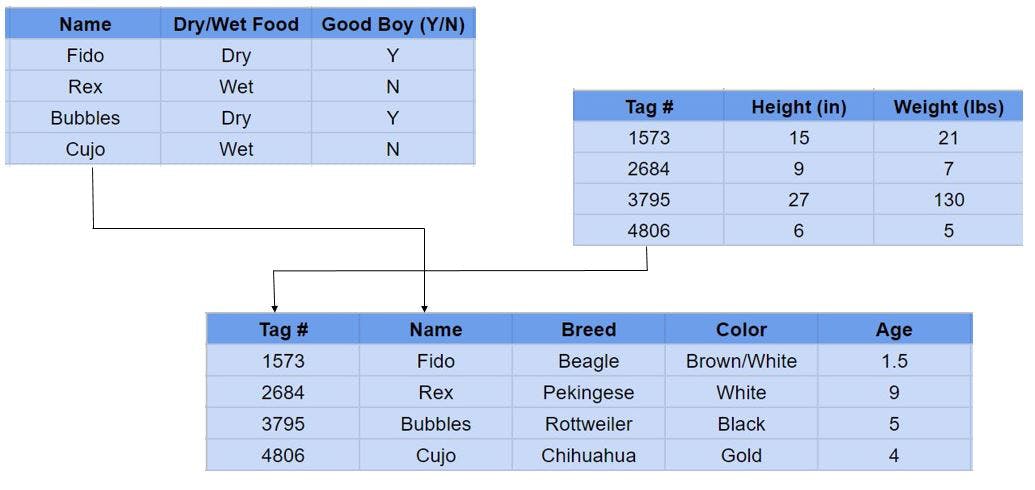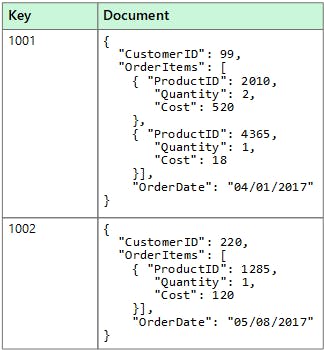Trying to decide whether to use a SQL or NoSQL database for your website? Look no further!
Most Web Developers overlook the fact that almost all websites interact with a database. It is important to understand the basics of the backend process, in order to become a versatile developer.
What is SQL
SQL or Structured Query Language, is a programming language used for relational databases. SQL is the language that allows you to access and modify values in a relational database. Some tasks SQL can perform are, queries against a database, retrieving data, inserting, updating, and deleting records.
A relational database is a database formatted in tables that contain rows and columns. The tables hold data about one theme/topic, these tables are connected via foreign keys. They work best with structured data as it makes it easy to filter through the data quickly.
 Here is a basic example of a relational database from Logi Analytics
Here is a basic example of a relational database from Logi Analytics
Pros
- Reduced data storage: Since we use multiple tables containing one theme connected with IDs, it reduces redundancy of the row data.
- Queries: Related databases use SQL to ask or query to quickly obtain specific details in a database.
- No coding required: SQL makes it easy to type in a value and the database returns data relating to that keyword.
- Interactive: Add filters to further specify our queried data.
- ACID: The structured databases enable SQL to be ACID compliant. This is best for applications that need the highest level of data integrity, see more about ACID here
Cons
- Cost: Vertical scaling can become expensive if you have tons of data.
- Rigidity: The database must be designed before use, this process may be difficult and expensive.
What is NoSQL?
NoSQL are non-relational databases. According to MongoDB, there are four major types of NoSQL databases: document databases, key-value databases, wide-column stores, and graph databases.
 Example of JSON data (non-relational data) from Microsoft Blogs
Example of JSON data (non-relational data) from Microsoft Blogs
Pros
- Flexible schema: This allows you to modify the structure in many different ways.
- Scaling: NoSQL scales vertically, meaning you can stack data all in one location rather than multiple tables.
- Queries: Querying data in a NoSQL database can be faster than a SQL database because data doesn't have to be joined from tables like they do in relational databases.
Cons
- No standardized language: Since it doesn't have a programming language for querying, it lacks the ability for complex queries.
- Inconsistency: The data being retrieved may be inconsistent, the queries might not be updated as effectively as SQL.
Conclusion
You now know the basics of SQL and NoSQL databases and you're probably wondering, "what database should I use"? If you are looking for a flexible structure database with inexpensive and fast scaling, I would recommend a NoSQL database. NoSQL is better for projects that require an enormous amount of data to be stored as it's better at scaling.
For projects that need their structured data to be stored with an easy-to-use interface, and the ability to precisely query through data, I would go with SQL. You could also use both in your project if you have more time and resources and create a database with the best of both worlds.
Thanks for reading! I post blogs every week, mostly about beginner-friendly resources on Web Development, so if you find this content useful, please like and share! 👍
